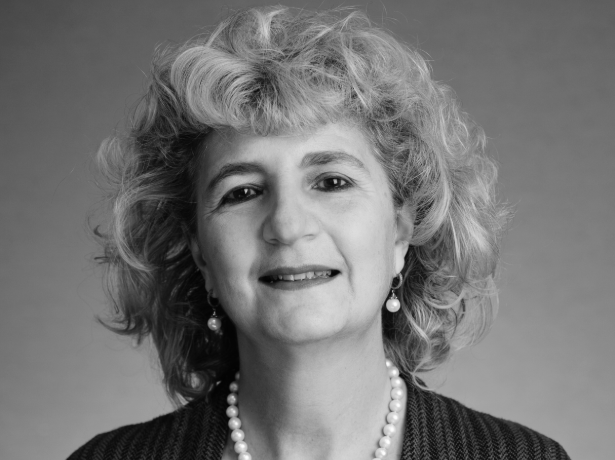Bloomberg: City of London Shakeout Puts a Spotlight on Broker Peel Hunt

In this recent Bloomberg article Dowgate Group Co-Chair Lorna Tilbian shares her insights on the state of London’s broking industry and Peel Hunt’s position as one of the last major independent firms - highlighting how resilience and culture continue to define value amid consolidation across the sector. The full article which was published on 10 November follows, with thanks to Bloomberg for their permission to republish here:
By Leonard Kehnscherper
Twenty years ago, one of the crucial choices for any company hoping to join the London stockmarket was picking a corporate broker. A financial crisis and thousands of pages of regulations later, broking names like Hoare Govett, Collins Stewart and Cazenove have been swept away by takeovers. For the companies braving the UK equity markets nowadays, a shrinking number of mostly international firms are left to help.
It’s left one broker in a unique position as a big yet still independent firm guiding clients through their interactions with the public markets. Peel Hunt Ltd. has been through ownership changes and its own unfortunately-timed IPO, months before the Russian war in Ukraine froze markets in 2022. It’s on the growth path again, and expected to return to profit soon. Its bankers are working on a spate of corporate deals — partly a symptom of cheap valuations on the London Stock Exchange tempting foreign bids. More often than not, Peel Hunt’s clients are on the receiving end of the takeover approach, potentially diminishing its pool of business in the long term. “We’re doing a lot of M&A. That’s fine, but you’re losing companies,” Chief Executive Officer Steven Fine, 59, said in an interview.
The question now among dealmakers is whether Peel Hunt itself is the last big takeover candidate in London broking. “Because there’s been so much consolidation, there are fewer players in the market now. So by definition, they’ll attract higher valuations because the market’s been so bad that new entrants haven’t come in,” said Lorna Tilbian, co-chair of Dowgate Group and a founder of Numis Corp., the broker acquired by Deutsche Bank AG two years ago. “The ones who survived, without diluting their culture — like Peel Hunt — I think will be worth more,” she said. “I mean, they’re the Numis of this cycle now.” Since Peel Hunt’s IPO, its FTSE 350client list has grown by 78% to 57 companies, five of which are part of the blue-chip FTSE 100 index. The aggregate market capitalization of its clients has also increased.
Founded by Charles Peel and Christopher Holdsworth Hunt in 1989, the business made its debut on the LSE in 2000 yet, only a year later, was taken private by Belgian bank KBC Group NV. Fine, who was overseeing some of KBC’s trading operations from Tokyo, was asked to run Peel Hunt in 2006. When KBC earmarked the division for disposal in 2009, Fine pressed ahead with a management buyout. To make up for the loss of KBC’s trading capabilities, Fine struck a deal with Credit Suisse to take on some execution services. And since 2021, Banco Santander SA has helped the firm to underwrite IPOs. Peel Hunt’s shares are down by half since its latest IPO, although they’ve rallied from a record low over the past few months. Since floating, the firm has reported three annual losses in arow and had to trim its headcount.
To some extent, Peel Hunt’s performance is tied to the wider trends on the UK public markets, which have not been favorable. London Stock Exchange Group Plc and the British government are trying to make wide-ranging reforms to stoke more interest in the country’s equity markets, at a time when the biggest S&P 500 firms mop up investor money at the expense of UK-focused funds. So far, there are small signs of progress. In an update that raised guidance for this year’s earnings on Sept. 5, Peel Hunt pointed to a “nascent” revival, mainly thanks to follow-on equity raises and block trades but also IPOs. After a dismal first nine months of the year, the pickup in activity began with the IPO of LED-face mask maker The Beauty TechGroup Ltd. on Oct. 3. Specialty lender Shawbrook Group Plc and packaged food maker Princes Group Plc went public later in the month, the latter with Peel Hunt’s help.
Still, the pressure has been building across London’s broking industry, sparking changes in direction. Four other City firms agreed to merge to form what are now Panmure Liberum and Cavendish Plc. Shore Capital, while still mostly owned by its founder, has expanded into asset management through its Puma Investments unit. Life at the newly-merged firms hasn’t always been easy. While Deutsche Numis managed to retain major clients, it was confronted with an inevitable culture clash between the German banking behemoth and the UK boutique. Numis Co-CEO Alex Ham is leaving for Barclays Plc, while finance and operations chief Andrew Holloway departed in September. Panmure Liberum, meanwhile, disclosed an £11 million loss for its merger year, when it made dozens of redundancies. The investment bank was also hit by the sudden death of City veteran Richard Morecombe, who oversaw origination and business development at the enlarged firm.
The consolidation wave inevitably puts Peel Hunt in the frame as a takeover target for large banks who want to expand their UK capital markets capabilities — even if no bidders have broken cover yet. “No one just swoops in and buys these firms,” said Robert Pickering, a former CEO of Cazenove, noting they are “people businesses’’ so the pressure to sell usually comes from employees and employee-shareholders, rather than external investors. “When profits collapse, there’s no bonus pool and you risk losing your best people. That’s the bigger concern,” said Pickering, who currently chairs Marex Group Plc. The trading group this year agreed to buy Winterflood Securities, a competitor to Peel Hunt’s stockbroking arm. Asked whether Peel Hunt would be able function as part of a large firm again, Fine said: “I worked for a big bank, and you can have a fantastic culture there.” He said it was also possible to have good culture in a much smaller operation. “It’s about how you run it and how you look after your employees.” Fine doesn’t just have a say as the firm’s CEO, but also as its biggest employee-shareholder with a holding of about 4.5%, according to data compiled by Bloomberg. Dozens of Peel Hunt’s roughly 300 staffers own stock in the company — with many likely waiting for their investment to turn green.
In the meantime, Fine is pursuing a standalone strategy for Peel Hunt, which is expected to report a 37% rise in half-year revenue next month. He’s opened offices in New York and Copenhagen, and plans to do the same inAbu Dhabi, where Peel Hunt’s sales team are targeting equity investors. Consensus estimates are for the firm to report a pre tax profit of £9 million for the year through March. Fine also started a podcast called “In Fine Company” — a reference to Nicolai Tangen’s interview series “In Good Company.” Together with his research head Charles Hall, Fine is one of the most vocal advocates for rule changes to incentivize investments into UK public markets. The duo regularly argues for reforms to tax-free individual savings accounts as well as pensions, which have dramatically reduced their investments in British stocks over the past two decades. These issues have moved up the political agenda ahead of the UK budget on Nov. 26.“I’m completely aware that everything I say is very often interpreted as being self-service,” Fine said. “But it’s very difficult for somebody in retail, hospitality, machinery, industrials or real estate to talk about UK capital markets credibly,” he added. “We’re seeing exactly what’s going on.” Hall warned UK policymakers in a recent note that mid-cap companies are being removed from the market on an “unprecedented scale,” with overseas bidders accounting for 61% of total activity this year. If the pace continues, Peel Hunt — which is listed on London’s Alternative Investment Market for smaller companies at a valuation of just over £130 million — could join the slew of takeover targets before too long.

